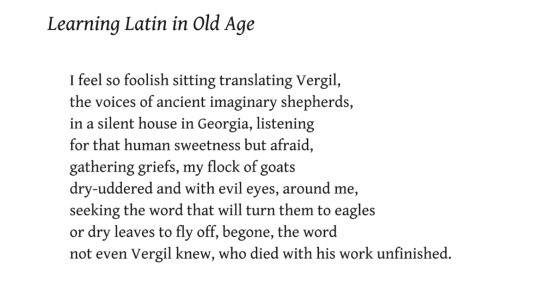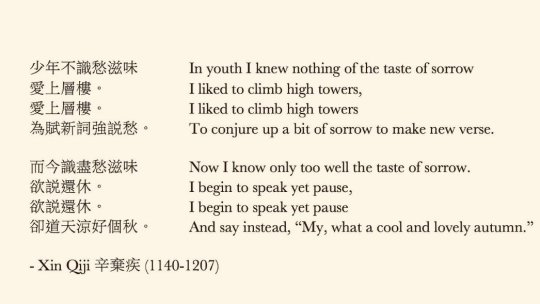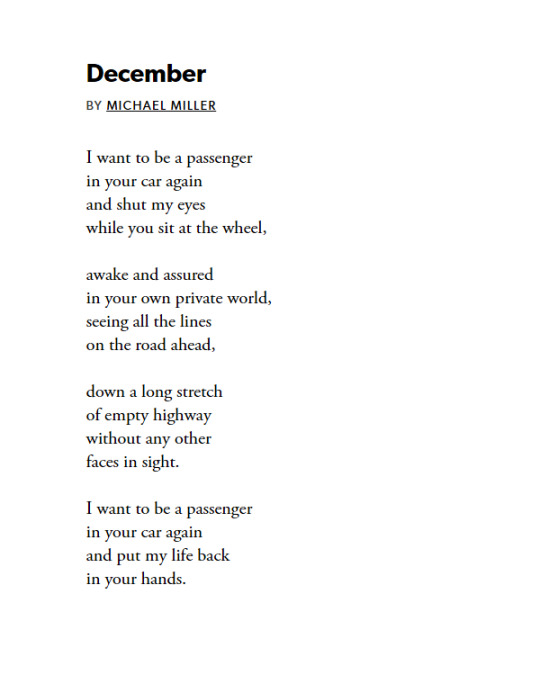reading sideblog, mostly private | main: cere-mon-ials | icon credit: holly warburton
Don't wanna be here? Send us removal request.
Text
Over the past decade, Netflix, which first emerged as a destroyer of video stores, has developed a powerful business model to conquer television, only to unleash its strange and destructive power on the cinema. In doing so, it has brought Hollywood to the brink of irrelevance. Because Netflix doesn’t just survive when no one is watching — it thrives.
will tavlin on the slop machine that is netflix, n+1 (2014)
0 notes
Text
Should we be content that waywardness is permitted nonetheless, or concerned that something else is hijacking our consciousness? That we’re forgetting the tongue of resistance as we conform to the language of “stability” and unity?
em on to the wonder: a cdrama about the kazakhs in xinjiang, active faults (2024)
0 notes
Text
Today’s newsletter is a compilation of stories about Japanese food told through its art, but it is also a compilation of stories that emphasise the influence of the outside, whether it’s Jelena Sofronijevic on Hokusai’s documentation of Chinese food production techniques, Hugo Brown on American food in post-war Japanese novels, or Kambole Campbell on Ainu food in the manga Golden Kamuy, and Japan’s indigenous population who are treated as peripheral.
[jonathan nunn, kambole campbell, hugo brown, jelena sofronijevic] on the story of japanese food told through four arts [pottery, manga, literature, printmaking], vittles magazine (2023)
0 notes
Text
While generative models rarely produce outputs that are substantially similar to any of their training inputs, the process of training a generative model involves making copies of copyrighted data. If these copies are unauthorized, this could potentially be considered copyright infringement, depending on whether or not the specific use of the model qualifies as “fair use”. Because fair use is determined on a case-by-case basis, no broad statement can be made about when generative AI qualifies for fair use. Instead, I’ll provide a specific analysis for ChatGPT’s use of its training data, but the same basic template will also apply for many other generative AI products.
suchir balaji — the 26-year-old whistleblower of open ai's activities — arguing that chatgpt's use of training data may not meet the standard of 'fair use' (2024)
0 notes
Text
Historiography has several related meanings, the most common being the study of the different ways in which writers from different time periods or backgrounds etc. have written the history of a particular topic. That is, historiography is the history of history-writing. A simple example will make this more clear: Folks who were writing the history of India in the late 1800s produced narratives very different to the narratives of those who wrote the (same) history of India in the early 1800s or the late 1700s. Besides, native Indian writers in the late 1800s produced a narrative of Indian history quite different from that of contemporaneous British writers, and Dalit writers in the 20th century wrote histories substantially different from those of 20th-century elite-caste writers.
kiran kumbhar explains historiography using romila thapar's 1968 essay titled ‘interpretations of ancient indian history’ (2024)
0 notes
Text
An aged man is but a paltry thing, A tattered coat upon a stick, unless Soul clap its hands and sing, and louder sing For every tatter in its mortal dress, Nor is there singing school but studying Monuments of its own magnificence; And therefore I have sailed the seas and come To the holy city of Byzantium.
sailing to byzantium, william butler yeats (1927)
0 notes
Text
The programmer Simon Willison has described the training for large language models as “money laundering for copyrighted data,” which I find a useful way to think about the appeal of generative-A.I. programs: they let you engage in something like plagiarism, but there’s no guilt associated with it because it’s not clear even to you that you’re copying.
We are entering an era where someone might use a large language model to generate a document out of a bulleted list, and send it to a person who will use a large language model to condense that document into a bulleted list. Can anyone seriously argue that this is an improvement?
The task that generative A.I. has been most successful at is lowering our expectations, both of the things we read and of ourselves when we write anything for others to read. It is a fundamentally dehumanizing technology because it treats us as less than what we are: creators and apprehenders of meaning. It reduces the amount of intention in the world.
ted chiang on why ai isn't going to make art, the new yorker (2024)
0 notes
Text
“No one wants to kill the golden goose,” one early-career researcher in business academia said. If management and marketing professors embraced all of psychology’s reforms, he said, then many of their most memorable, most TED Talk–able findings would go away. “To use marketing lingo, we’d lose our unique value proposition.”
daniel engber reporting on the sham that is the business school and their 'research', the atlantic (2024)
0 notes
Text
If reading heightens your responses, shapes your idea of the world, gives you a sense of the purpose of life, then it is not surprising if, over time, reading should come to play a proportionately smaller role in the context of the myriad possibilities it has opened up. The more thoroughly we have absorbed its lessons, the less frequently we need to refer to the user’s manual.
geoff dyer on reader's block, fsg work in progress (2011)
0 notes
Text
I’m sorry to bring him up incessantly but Pablo Picasso wasn’t fucking around with artist statements. He and his buddies were hanging out, inventing new ways to use the senses, collecting poets, starting magazines when they felt like it, painting whatever, showing on the boulevard sometimes, icing out losers, reading, honestly kind of torturing each other, and so on. We should not allow our own artistic practices to be replete with inanities! They want us to describe ourselves in GRANT-WRITING LANGUAGE like we are PROJECT MANAGERS rather than to describe our ideas with the MANY VARIED LANGUAGES OF ART! This is how they make us speak THEIR desires!
elisabeth nicula on re-imagining support for art, small press traffic (2024)
0 notes
Text

all that wanting, right? by Devin Kelly
1K notes
·
View notes
Text
“I want you to do this with me for one month. One month. Write 10 observations a week and by the end of four weeks, you will have an answer. Because when someone writes about the rustic gutter and the water pouring through it onto the muddy grass, the real pours into the room. And it’s thrilling. We’re all enlivened by it. We don’t have to find more than the rustic gutter and the muddy grass and the pouring cold water.”
— Marie Howe, Boston University’s 2016 Theopoetics Conference (via mothersofmyheart)
7K notes
·
View notes
Text

ALT
Ursula K. Le Guin, “Learning Latin in Old Age” (from Finding My Elegy: New and Selected Poems, 2012)
4K notes
·
View notes
Text

what's the opposite of feeling sand slip through your fingers because I feel this poem more and more as time passes
19K notes
·
View notes
Text
Stardust is the hardest thing to hold out for. You must make of yourself a perfect plane— something still upon which something settles— something like sugar grains on something metal, but with none of the chill. It’s hard to explain.
kay ryan, stardust (2002)
0 notes
Text
tenderness and rot
by kay ryan
Tenderness and rot share a border. And rot is an aggressive neighbor whose iridescence keeps creeping over. No lessons can be drawn from this however. One is not two countries. One is not meat corrupting. It is important to stay sweet and loving.
5 notes
·
View notes
